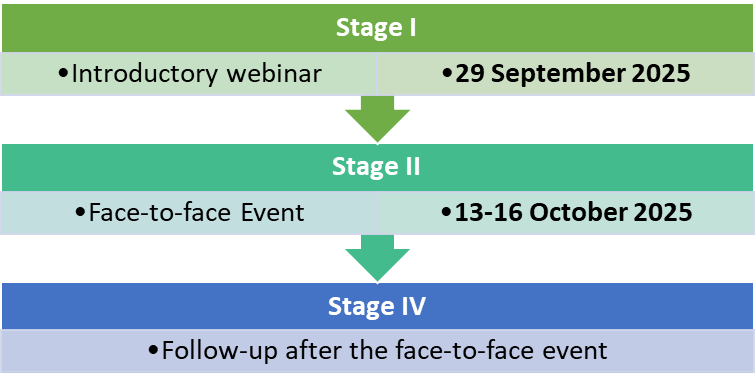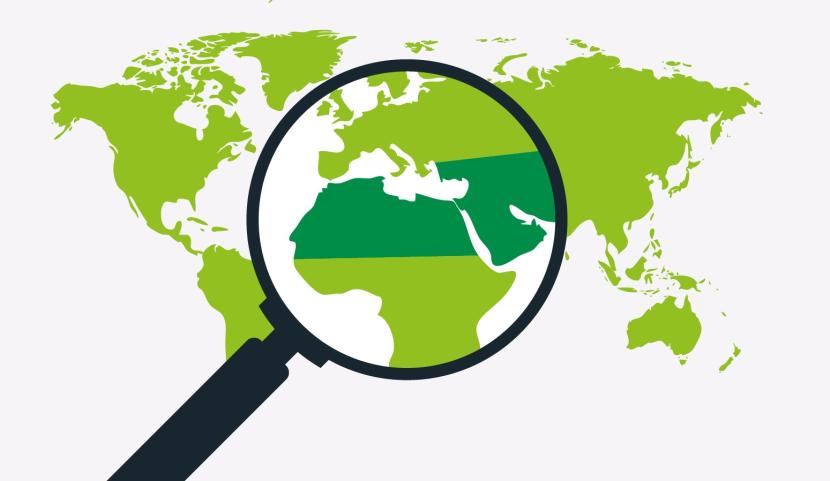Background
Reporting information necessary to track progress made in implementing and achieving national determined contributions transparently is a key requirement under the Paris Agreement’s Enhanced Transparency Framework (ETF). The provision of clear and understandable data and information in the BTR and the NDC plays a crucial role in ensuring transparency under the Enhanced Transparency Frameworks (ETF) and supports achieving the objectives of the Convention and the Paris Agreement.
The year 2024 marked a new beginning of biennial transparency reporting of which this will be every two years thereafter. In December 2024 about five countries from MENA were able to submit their first BTR however, the task of periodic reporting requires continuous capacity building on the associated BTR development processes such as use and adoption of the new formats are also key aspects to ensure that countries comply with the transparency conditions established in the Article 13.
In addition, this year 2025 Parties are requested to submit the next round of NDCs (NDC 3.0) to the UNFCCC secretariat. Parties are expected to submit updated NDCs every five years (e.g. by 2020, 2025, 2030), regardless of their respective implementation time frames. In the updated NDC, Parties may at any time adjust their existing Nationally Determined Contribution with a view to enhancing its level of ambition (Article 4, paragraph 11).
Since 2024, CBIT-GSP in collaboration with partners have been supporting capacity building among MENA countries. The support has been through regional training, peer learning and exchange sessions, hands-on country training, online sessions and webinars. However, countries still have limitations in understanding the knowledge and using new tools and formats to ensure compliance with the transparency conditions established in Article 13. It is very imperative to build capacity within countries to have functional systems to enable consistent reporting through Biennial Transparency Reports (BTRs) under the enhanced Transparency Framework.
To this end, the Regional Network Countries for MENA are invited to participate in a joint training exercise aimed at fostering the linkage between NDCs and BTRs, with a focus on NDC tracking, projection tools and Article 6 Reporting, which were assessed as priorities on capacity building for transparency in the regional network. The event will be hosted by the Egypt Government and held in Cairo.
Objective
The main objective of the training workshop is to support the country’s practitioners and experts supporting BTR development processes in understanding the linkage between NDCs and BTRs, with a focus on NDC tracking, projection tools and Article 6 Reporting.
Specific objectives:
- Provide national teams with useful information and international experiences that link NDC and BTR Processes, including the application of Decision 4/CMA.1 (ICTU and accounting approaches).
- Practice with concrete examples of mitigation assessments and considerations for prioritizing climate actions for NDC 3.0
- Train national teams in the use of UNFCCC ETF reporting tools
- Provide national teams with useful information and opportunities for reporting on Article 6 in the BTR.
Audience
This activity is intended for technical officers who work as coordinators of the BTR development process, and NDC coordinators of the countries of the MENA Regional Transparency Network. This includes government staff at the national and sectoral levels, and staff from other institutions that are part of countries’ institutional arrangements for reporting under the UNFCCC and the Paris Agreement.
Approach
The Webinar and physical training workshop will be in English. The training is organized in three stages. Firstly, an introductory webinar that mainly sets the approach and provides instructions to the participants of the other parts of the training workshop (Stage I). Second, stage consists of a face-to-face event where, through practical exercises and presentations (Stage II). And a final follow-up phase (Stage III), aimed at providing feedback to the participants on the exercises and results produced by the country representatives during the face-to-face training.

